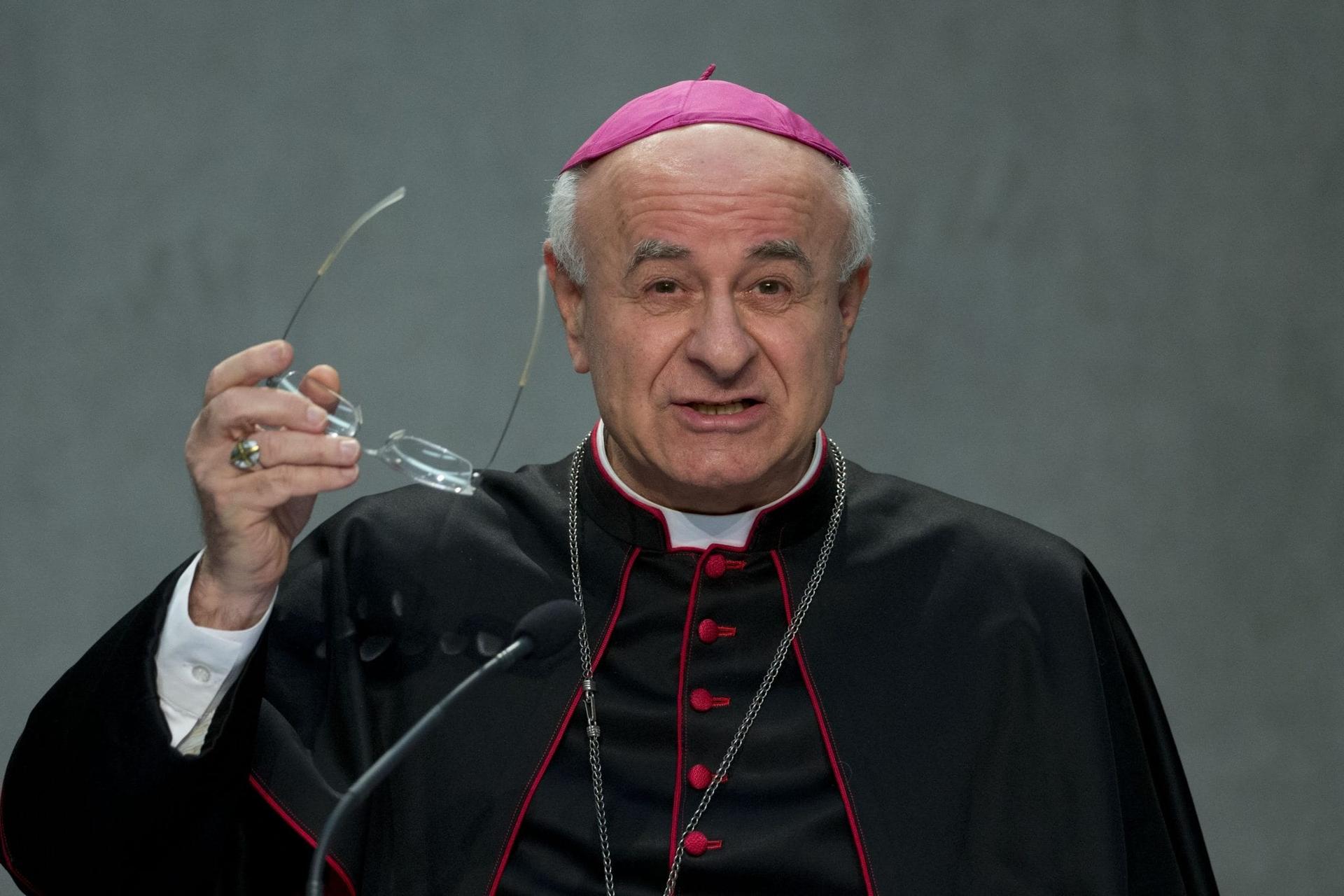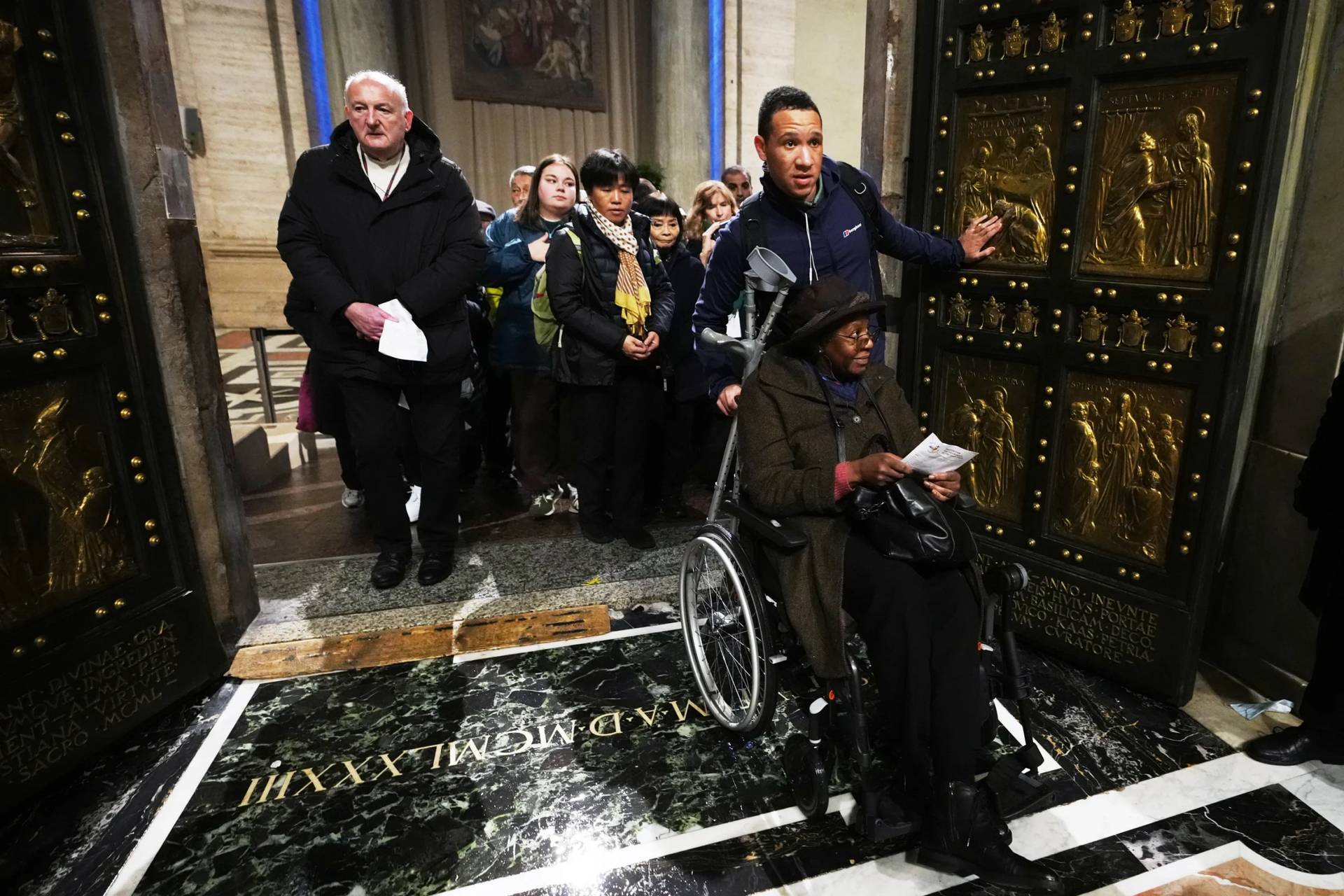Speaking to US bishops and a leading Catholic group devoted to bioethics, a senior aide to Pope Francis on life issues sketched a series of new moral challenges coming on the horizon driven by technological change.
“Technologically advanced society is preparing for a qualitative leap. Science today is able to intervene in the life of each individual and on future generations without necessarily offering any improvement in the conditions for human existence,” said Italian Archbishop Vincenzo Paglia.
“Man’s desire to rule over nature soon becomes a desire in every heart to control, shape and empower the biological self, and the only reality worth relying on seems today to be the life that man believes he can build with his own hands,” he said.
Paglia, tapped by Pope Francis to head both the Pontifical Academy for Life and the St. John Paul II Pontifical Institute for Studies of Marriage and Family, spoke on Feb. 6 in Dallas at a workshop for US bishops organized by the National Catholic Bioethics Center.
Specifically, Paglia ticked off three specific challenges looming on the horizon in the early 21st century.
First, he cited studies predicting that health care will be one of the central elements of Western economies due to the development of preventive medicine protocols in addition to the traditional treatment of acute and chronic illness.
Second, Paglia said, technology will soon be able to manage all the variables connected with human reproduction, which until now have been left to “nature” or “chance.”
“Why should we leave reproduction to chance and burden it with the potentially limiting circumstances of the binding affective relationship known as marriage,” Paglia asked, “when we can manage the entire process all by ourselves?”
Third, Paglia said that developments in robotics and the increasing integrating of man and machine poses the question of how we can speak about “nature.”
“Does it still make sense to speak about a basic ‘human nature’,” he asked “and if so, how do we do so in a way that is not merely defensive in a world where everyone else believes in technology, at least on a practical level?”
Facing those challenges, Paglia said, will require renewed ethical wisdom from the Church, and also new alliances with all those who share the Church’s basic commitment to the sanctity of all human life – including, he implied, new strategies from the pro-life movement.
“If we want to respond to the challenges facing us, we shouldn’t think that we are being called to a conflict but rather to a rebuilding, a reconstruction of what it means to be human,” Paglia said.
“Thus, while there are of course certain enemies to identify, we must first get to know our companions on the journey,” he said.
In that context, Paglia said that Pope Francis’s decision to unify the Academy for Life, the John Paul II Institute and the new Dicastery for Family, Laity and Life is more than a bureaucratic reshuffling, it’s about a clear anthropological vision.
We need to develop a holistic understanding of human life — life which has its very beginnings in the generative relationship between man and woman,” Paglia said.
Building that holistic vision, Paglia argued, will allow the Church to respond effectively to “new forms of desertion and violence against human life, life that is more and more at the mercy of technology and hateful greed.”
He encouraged picking up Pope Francis’s image of the Church as a “field hospital” as the right way to respond to those threats.
“The reference to a hospital is a telling metaphor for hospitality, a concept that is key for anyone who wants to think how to welcome, care for, and support others at every stage of their lives,” he said.
“The idea of hospitality always implies recognizing the other, someone who is welcomed for who he is, a foreigner, healthy or sick, to our liking or not. We have no claim on him. Only one who treats another just like himself, who opens his heart, and his home, can bear witness to that highest quality of life, sacredness, which is the first and genuine source of equality.”
Paglia said the Academy for Life will ponder these new challenges during a General Assembly in October, titled “Accompany Life – New Responsibilities in a Technological Age.”
“In an age marked by too much technology, avarice, power and materialism, the word ‘accompany’ makes us think of companionship, sharing, and the path we tread together. For sure we are to establish effective accompaniment for life at every one of its stages,” he said.
“For sure we must stand against whatever weakens or still worse destroys life or threatens its dignity,” Paglia said. “Without fail, and quickly, we are to learn the art of encounter and sharpen our ability to rebuild relationships, to build up open communities, to provide the means to change lives and social mores.”















